In 2024, the PET/HDPE plastic recycling plant is expected to officially come into operation. This is the first food-grade plastic recycling plant in the North. The project is jointly implemented by ALBA Asia Group and VietCycle Joint Stock Company.
Changing the way we deal with plastic waste
According to the World Bank, every year Vietnam has about 3 million tons of plastic waste discharged onto land and about 0.28 to 0.73 million tons of plastic waste discharged into the ocean.
Society's abuse of plastic products, especially non-biodegradable plastic bags and single-use plastic products, has had serious consequences for the environment. According to the Ministry of Natural Resources and Environment (MONRE), the current situation of plastic waste pollution is very serious, the amount of plastic waste is still very high. This is a serious "burden" for the environment. Each year, the total amount of domestic solid waste is 25 million tons, but only 30% is treated, burned or produced into organic fertilizer, more than 70% is buried directly. Of which, the amount of plastic waste and plastic bags accounts for about 8% -12%.
According to the assessment of the Institute of Marine and Island Research, plastic waste accounts for about 50% to 80% of marine waste. Currently, Vietnam is one of the countries with the 4th largest amount of waste discharged into the sea in the world, with a volume of about 0.28 to 0.73 million tons/year (equivalent to about 6% of the total plastic waste discharged into the sea in the world).
Experts say the main sources of pollution related to plastic waste in the sea in Vietnam include land-based sources and marine sources, including marine tourism activities.
In many cities and provinces, local governments are struggling to collect, transport, and treat growing waste streams. This situation is expected to worsen with rapid urbanization and economic and population growth.
At the World Economic Forum launching the program "National Action Partnership on Plastics in Vietnam", Minister of Natural Resources and Environment Tran Hong Ha emphasized: The current environmental problems of plastic waste are not the fault of plastic products but the way we use and dispose of plastic products improperly.
Therefore, we need to change the way we treat plastic through scientific management, increasing recycling and reuse of plastic products to extend the life cycle of plastic, contributing to reducing the exploitation of natural resources and greenhouse gas emissions. Only then can we fully exploit the features of plastic products, contribute to environmental protection and respond to climate change.
German technology comes to VietnamJoining hands with Vietnam to combat climate change, ALBA Asia Group and VietCycle Company announced the signing of a cooperation agreement to jointly develop the largest PET/HDPE plastic recycling plant in Vietnam that meets food packaging quality standards. The total investment capital for the plant is expected to be up to 50 million USD and the capacity is up to 48,000 tons/year.
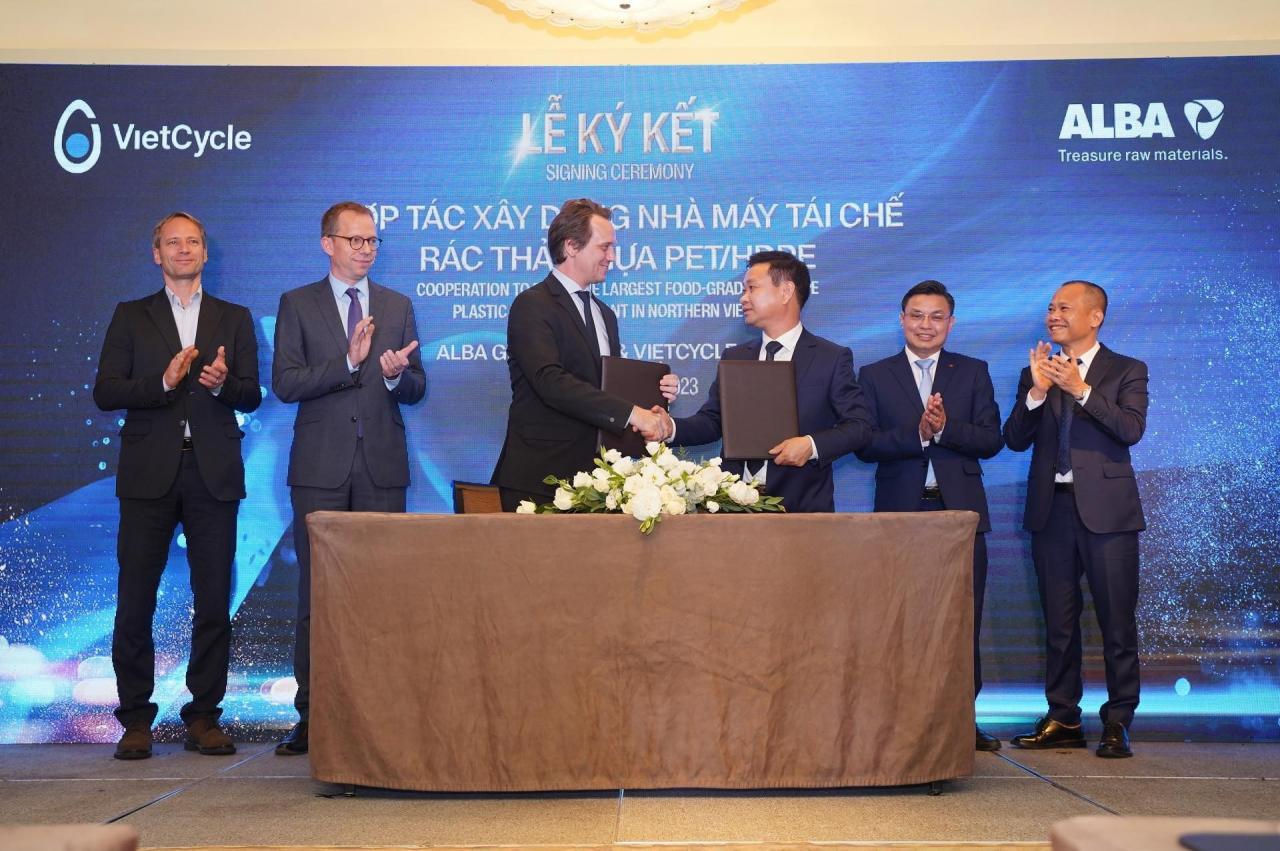
Dr. Hoang Van Thuc, Director of the Department of Environmental Pollution Control, Ministry of Natural Resources and Environment and Deputy Ambassador of Germany, Dr. Simon Kreye witnessed the Signing Ceremony. Photo: baotainguyenmoitruong
This recycling plant will use advanced technology from Germany to recycle rPET plastic that meets international standards. With a total investment of more than 50 million USD, the plant is expected to be completed and put into operation in 2024.
Director of the Department of Environmental Pollution Control (Ministry of Natural Resources and Environment) Hoang Van Thuc said that this agreement is a significant contribution to Vietnam's efforts to combat environmental pollution.
Dr. Axel Schweitzer, Chairman and Shareholder of ALBA Group Asia said, "The project will contribute to urgent solutions to the growing problem of plastic waste in Vietnam. It will also create a significant number of green jobs and improve social security for many informal collectors. For me personally, this is as important as the positive environmental impacts and economic success."
The partnership between ALBA and VietCycle will enable the expansion of VietCycle’s collection network. ALBA and VietCycle will work together to promote gender equality and social inclusion in the collection system and the plastics recycling industry as a whole.
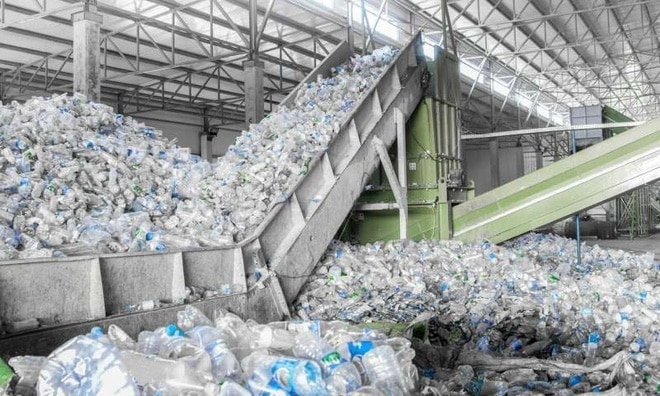
Plastic bottles are sorted to be taken to the recycling plant (Photo: People's Representative).
In addition to building a standard recycling plant, the cooperation between VietCycle and Alba also includes expanding VietCycle's network of scrap and bottle collectors from about 2,500 to more than 23,000 people, reaching at least 500 scrap collection points nationwide. The joint venture of the two enterprises will support this force to practice more effectively the collection and classification of scrap, while providing social security benefits such as health insurance and social insurance.
Mr. Hoang Van Thuc, Director of the Department of Environmental Pollution Control, Ministry of Natural Resources and Environment, also highly appreciated the potential of cooperation between Alba and VietCycle in promoting waste collection, classification and recycling, towards a circular economic model. This is also an important mark for the trust, companionship and cooperation of international friends towards the goal of sustainable development, transition to a circular economy and Vietnam's commitment to carbon neutrality.
| According to statistics from the Vietnam Plastics Association, the amount of plastic waste and nylon bags in Vietnam accounts for about 8% -12% of domestic solid waste, but only about 11% -12% of the amount of plastic waste and nylon bags are treated and recycled, the rest is mainly buried, burned and discharged into the environment. This can lead to environmental disasters, especially ocean pollution. |
Thuy Trang


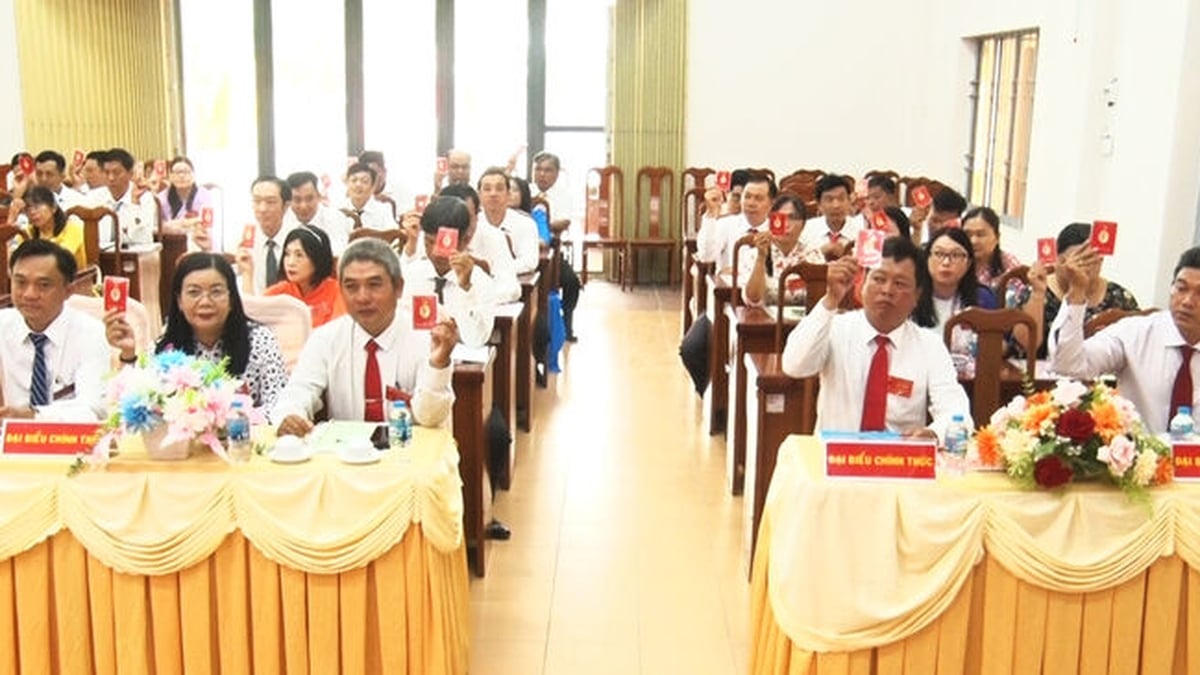



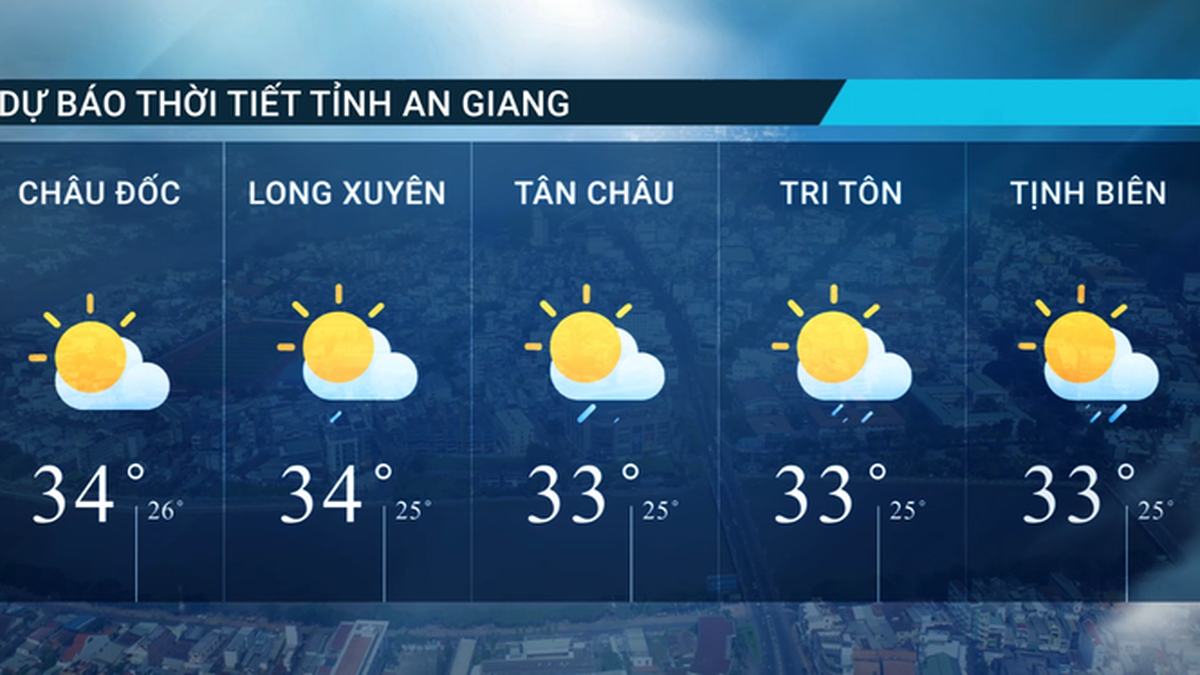
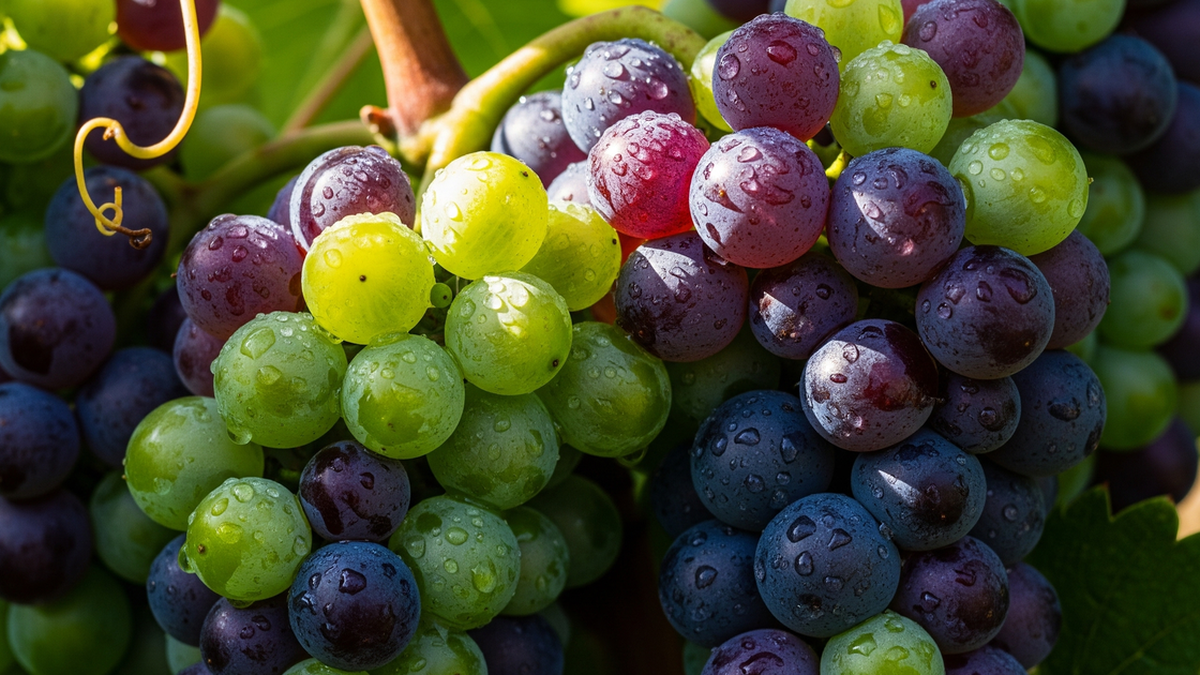

























































































Comment (0)